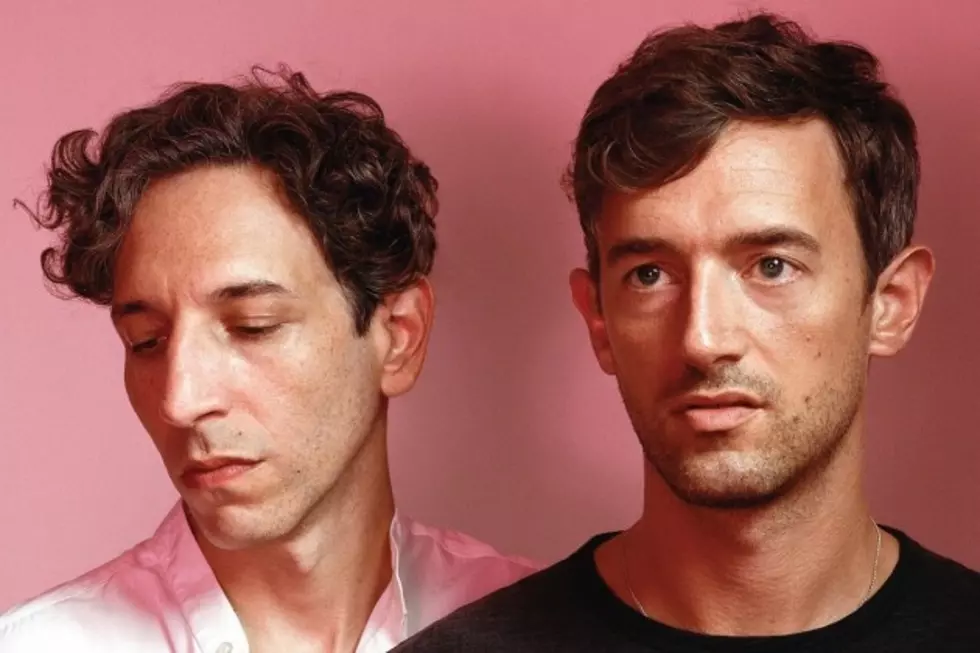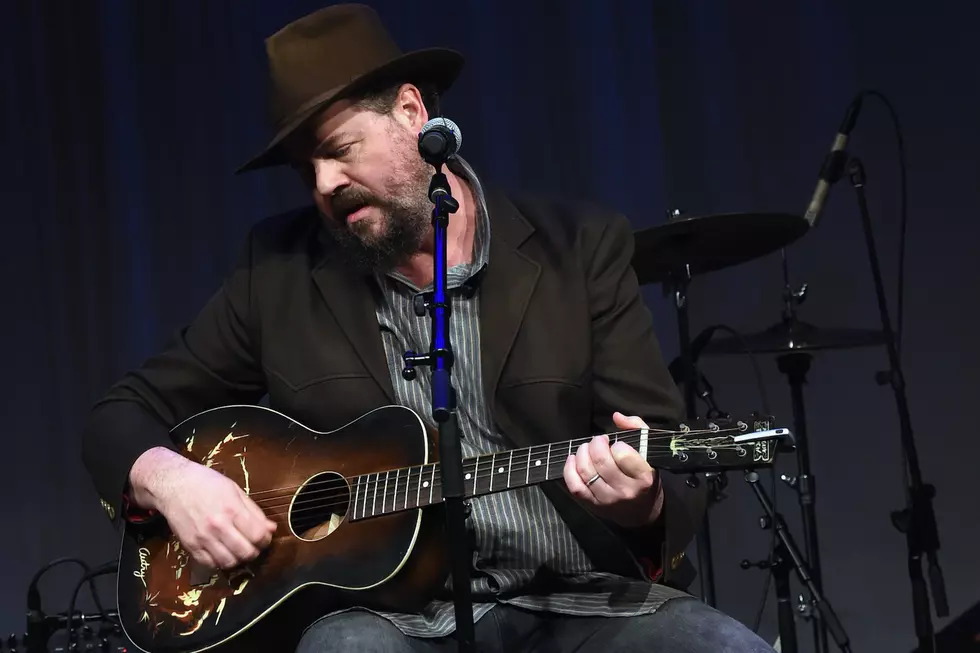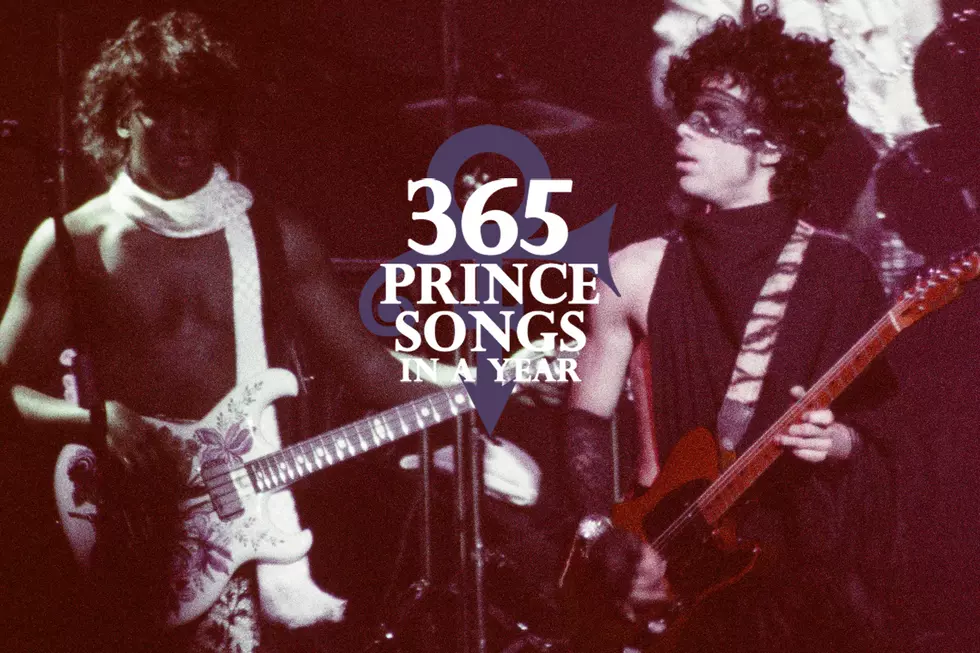
Jesse Cohen of Tanlines Discusses Their New Album ‘Highlights’ + Why Music With Melody Is Best
Electronic indie dance duo Tanlines have climbed their way up from the Brooklyn DIY scene to a well-earned tenure in the spotlight with their refreshing blend of pop-inspired hooks and groovy electronic beats. Their new sophomore album, Highlights, (produced by Grizzly Bear's Chris Taylor and recorded in an empty church) dropped May 18 via True Panther Sounds. It's the band's cleanest and most structured record to date with tracks that will bring the fun out in just about anyone. They're currently on tour in support of the new record, so head on over to their undeniably rad, Netflix-inspired band page for more info on dates and ticketing. We had the chance to chat with half of the band – percussionist Jesse Cohen – who talked to us about everything from his pride for the new record to the popularity of live music, and also why he prefers music with a melody more than any other.
There's a lot of pop influence in all of your music. Were the two of you always fans of the pop genre?
Yeah, I would say definitely [we were] in addition to having phases where we would listen to stuff that was very far from pop, as well. [Pop music] is a nonstop running soundtrack for us. It's always there whether it's the thing we're listening to or not. So, sure. Growing up with pop music, some of the artists who influenced us were Bruce Springsteen, Tom Petty, Michael Jackson and Tears For Fears. I don't really know how those artists necessarily influence or affect our music, but they're absolutely there.
Do producers make the best electronic artists?
Well, "producer" is such a loose term, you know? It's a very abstract term in music and it can mean the very technical stuff, the musical stuff or the very opposite of that. The producer on our album, Chris Taylor, doesn't have any real technical training. He's old-school. He sets up mics and records and listens to the takes and what sounds good. Our production style is more technical than that and it's more working with electronic sounds and effects and things like that, so it was a good balance for us. There have been producers that have just walked in and not played anything and just said, " That's a great take" and then there are producers who sit down and control every aspect – all of the sounds you hear on the album. So, yeah, electronic music in general is production-driven completely.
How did being part of the Brooklyn DIY scene strengthen you as a band?
Mostly because when we were coming up, there were just a ton of venues to play. It wasn't hard for us to get stage time, so to speak. There were a lot of alternative venues and all kinds of different places to play, so I think that really helped us grow. Playing live was a huge aspect in what gave us the confidence to keep writing and playing music. I think that, if we were elsewhere and it was harder to find places to play, that would have made it a bit more of a challenge for us.
Were there any delays in the release of your new record that are responsible for the three-year gap without new music?
The biggest thing would be that we were touring our album for almost a year and a half. So, if anything slowed us down, that was just a very long album cycle. It's hard for us to switch gears into the next thing while we're still on the last thing. I wouldn't complain about it, though. I also think it's becoming more and more common for there to be more time in between albums because of the very reason I just said. As live music is a growing thing and there are more and more festivals and more places to play, you can be out there playing your last album for almost two years. That is, unless you're a whole industry. If you have people working with you and you can record on the road and all those things that would kind of help you to keep pumping stuff out but we're not in that position. We're pretty hands-on when we tour.
What did you do differently on Highlights that we might not have heard with Mixed Emotions?
I think the biggest thing was that, when we started to work on the album, we wanted to get more of the live aspect of our band onto the album. We focused more on those things instead of recording outside of our own studio. So there's more guitar and drums and Eric's voice is the biggest, boldest change between the two album. Also the sound of the album is a much richer sound. There's air since we recorded in a giant church. So instead of having a giant reverb plugin that simulates a giant room, we actually recorded in a giant room. I think that makes a big difference. The human element is really there and present.
Is there any one particular song on Highlights that is your personal favorite?
You know, I don't really have one. It's hard for me to say. It's very hard for me to divorce myself from the process of making each of them. I'll just say that I'm pretty proud of a song like "Slipping Away" because that's one that changed a lot over the course of writing the album and it ended up in a place that I feel really good and strong about. It made me feel like all of the work we had done on it had really paid off.
You were touring with Julian Casablancas when you first started to get noticed and now his music is a complete departure from anything remotely pop-sounding. What are your thoughts on noise-rock and music without a melody?
Personally, I have never been that interested or attracted to what you could call "difficult" music. I don't want to speak for Eric because Eric has had phases where he has played in math-rock bands and he definitely has different tastes than I do. But my relationship to music has always been more of a visceral and emotional thing. Not in the sense that I'm moved by loud or abrasive sounds, but more in the sense that I'm moved by letting a catchy or repetitive thing inside of me. It just gets stuck inside of me. I allow myself to get hooked by the hook. It's always been the part that has moved me the most in music. So I've never done anything that you could describe as "difficult." I've honestly never been particularly inspired [by it], except in an intellectual way where I can hear a piece of music and think "that's interesting what they're doing there" or "I've never thought of using that instrument in that way, cool!"
That reaction, though, is not the reaction I enjoy most about music. To me, it's a very fleeting response. It's never been the thing that has pushed me to do music or something I've strived for. The reaction I enjoy most about music is either being physically moved by it – like dancing, for example, or the nostalgic connection where you hear something and it sounds familiar, even the first time you hear it. Also, the emotional direction where you hear something and it either makes you feel good or longing or whatever those things are. In general, those are things that I don't personally get from that "difficult" style of music. Our band started out a bit more experimental in terms of how we wrote music but, for me, that process was just learning and figuring out what we were good at. Once we wrote a song like "Real Life" early on, which was a real song, and people responded to it, that became the thing that was much more interesting than putting a pallet of songs onto an album in a totally haphazard kind-of way.
Are you guys big TV junkies? Is that why you revamped your website to look like Netflix home page?
[Laughs] as much as anyone else, I guess. It was an idea that occurred to me because I was staring at the Netflix screen for like a half hour one day to try and figure out what to watch and I was like, "Wow, usually you don't sit on one page for this long. This would be a great place to have my band, people would see that." So what started out as this funny idea grew into this whole thing that we put together. I would say it's a combination of a tribute and also a self-aware acknowledgement of the way that people use the internet in 2015. You know, you spend a lot more time looking at something like that than you would ever do looking at something like your favorite band's website, which you would almost never go to.
More From Diffuser.fm









